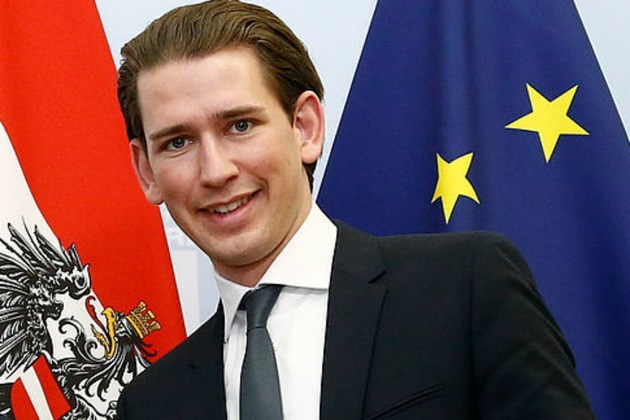One of the main events of recent days has been the resignation of the Austrian Chancellor. On October 9, Sebastian Kurz voluntarily resigned from his position after investigations began against him. His team is accused of bribing the major Austrian newspaper Osterreich to publish high ratings for Kurz's party ahead of the 2017 elections.
It would seem, what difference does it make to Russia what happens in a small, albeit well-fed, Alpine country. But in fact, this is an important event, because Sebastian Kurz was the youngest chancellor in modern Austrian history. At the age of 27, he became Minister of Foreign Affairs, and at 31 he headed the government. Contrary to rumors, Kurz was not from some noble family. He is a self-made man. He started his career when he was 17 years old. At that time he joined the now ruling People's Party (ÖVP) and then very quickly climbed the career ladder. At 23, he was already the head of the Vienna committee of the ÖVP, then its youth wing, and soon became the secretary of state for migrants.
Kurz took up the post of Foreign Minister without even having a higher education. When the 27-year-old Kurz became minister, everyone laughed at him: how a person without a diploma can compete with experienced diplomats like Lavrov, Kerry and Steinmeier. The mockery did not last long: Kurz very quickly showed his toughness not only to enemies but also to friends. During the migration crisis, when millions of Syrians, Afghans and Africans flooded Europe, enjoying the hospitality of Merkel, it was he who stopped their flow. In February 2016, Kurz gathered the foreign ministers of the Balkan countries in Vienna and agreed to close the Balkan route, from now on migrants could no longer cross the Greek-Macedonian border.
Kurz's initiative then raised the authority of Vienna, reminding some of the former greatness of the Austrian Empire, which at one time was the main force on the Danube. The closure of the Balkan route caused an even greater flood of refugees in Greece and forced the EU to sign a deal with Turkey. According to it, the Turks returned to themselves illegal immigrants from Greece, and Brussels paid 3 billion euros for their maintenance.
The second time Kurtz made a loud statement about himself in 2017. At that time, Turkey was preparing changes to the Constitution to make the country a presidential one and expand Erdogan's powers. The Turkish leader sent his ministers to Europe to campaign among the Turkish community. One of them - Minister of Economy Nihat Zeybekchi - was supposed to come to Austria, but Sebastian Kurz personally banned his entry. Of course, this move greatly spoiled Turkish-Austrian relations, but Kurz once again proved himself as the leader of Europe. Later, when relations between the EU and Turkey begin to deteriorate over gas disputes in the Mediterranean, Kurz's anti-Turkish tone will become a general trend. Following him, many European politicians will demand an end to negotiations on Turkey's membership in the European Union, and Brussels will eventually impose sanctions against Ankara.
Kurtz is remembered for many other achievements in diplomacy. It was he who, having won the elections in 2017, accepted the right-wingers into the coalition, who advocated the lifting of sanctions against Russia. Kurz was among the few European leaders who came to Moscow and met with Vladimir Putin, despite sanctions and Crimea. Earlier this year, when a wave of outrage erupted over the arrest of Navalny, Kurtz defended Nord Stream 2 and opposed the imposition of new sanctions against Russia.
The young chancellor also managed to distinguish himself on the Atlantic front. While all of Western Europe was arguing with Donald Trump, who threatened to withdraw from NATO, Kurz got along well with the head of the White House. The most interesting thing is that this did not prevent him from being friends with Trump's ideological enemy, George Soros. When Soros University was expelled from Hungary, it was Kurz who sheltered him in Austria.
To cut a long story short, in the short four years of his rule, the young, uneducated Austrian chancellor has almost become a political heavyweight and has increased the importance of his tiny country in world politics. Only, unfortunately for Kurz, in his homeland politicians are judged not for foreign policy victories, but to the fullest extent of the law.






